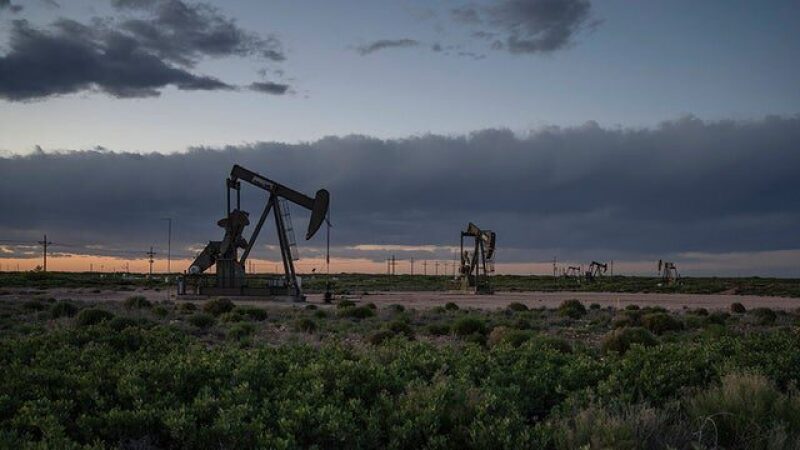Communities reliant on the oil and gas industry say it may take years, not months, to bounce back from the coronavirus pandemic that’s ravaging local economies.
Even in towns accustomed to the boom-and-bust cycle of oil markets, government officials say they’ve been hit with a double whammy.
With most service sector businesses shuttered to comply with stay-at-home orders, oil companies are scaling back production and laying off workers—a crushing combination in places where the health of the economy is tied firmly to the fossil fuel industry.
“The massive oil slowdown and the price drop affects literally every sector of the economy because the highest paid job sector is oil and gas and that basically supports a whole spectrum of other jobs,” said Republican Alaska state Rep. Chuck Kopp.
“Everything from our gym and fitness centers, nail parlors and salons, bars and breweries—which are very popular in Alaska—movies theaters, all the things you would normally see folks do are all severely restricted right now because of the shutdown,” he added. “But that recovery is going to take even longer with the severe slowdown in the oil and gas industry.”
Oil prices took a nosedive in April, trading at a record low by closing at negative $37 as futures traders sought to pay others to take physical possession of what had become a surplus of oil worldwide.
Even as companies have slashed budgets and cut production, there’s still a global surplus, driven in part by a production battle between Saudi Arabia and Russia and exacerbated by a 30% drop in demand as lockdowns became the norm.
The low prices dealt a severe blow to states that get most of their revenue—and offer most of their government services—through oil and gas taxes. The same is true for cities where sales and property taxes are both supported by income from the oil and gas industry.
Kopp said Alaska now has a $1 billion budget hole.
North Dakota, where more than 50% of state revenue comes from the oil and gas industry, is another state expecting a massive revenue decline.
In Williams County, the main source of oil activity in the state, roughly 50% of the town’s economy has a direct tie to the oil industry. But since 21 March, around 4,500 unemployment claims have been filed in the county, about 12% of its population.
The layoffs come as companies have cut production.
“The hope is the reduction in energy production worldwide brings us into balance sooner rather than later. Even if that still happens, I think it's going to take years to heal from this and not months,” said Republican state Sen. Brad Bekkedahl, who also serves as the finance commissioner in Williston, the county seat.

